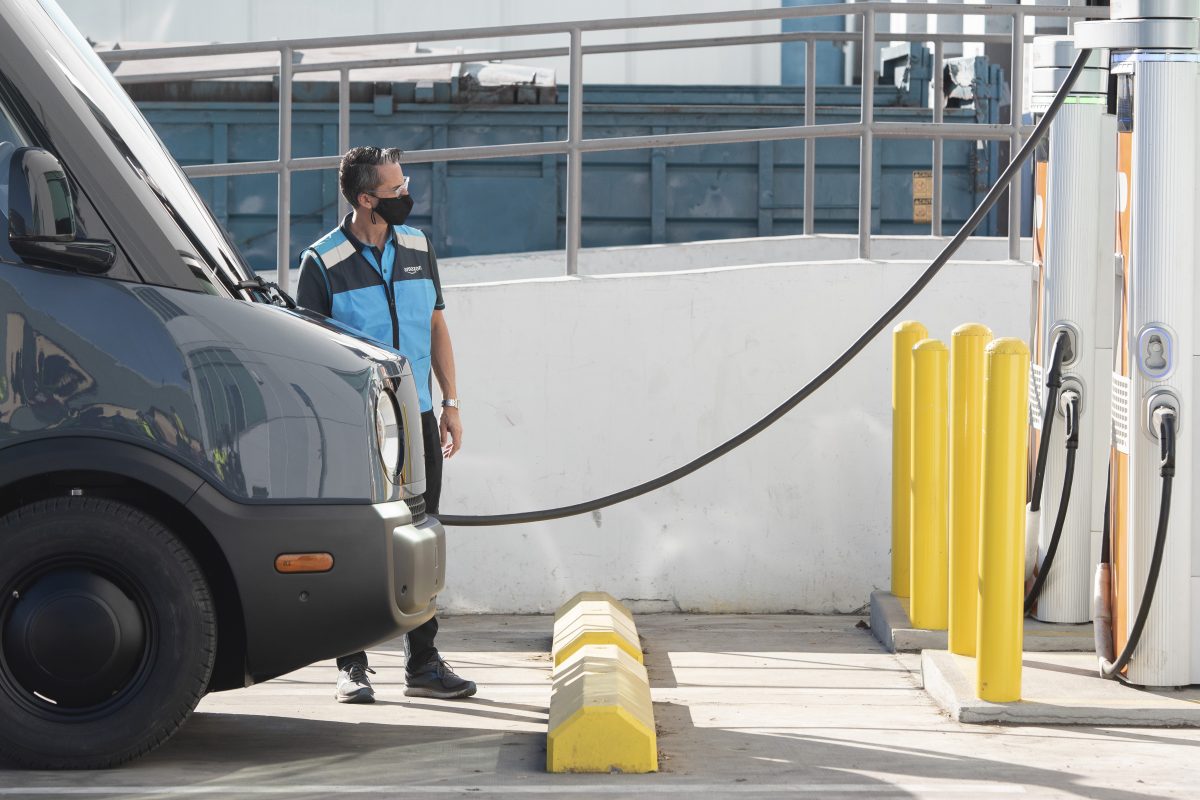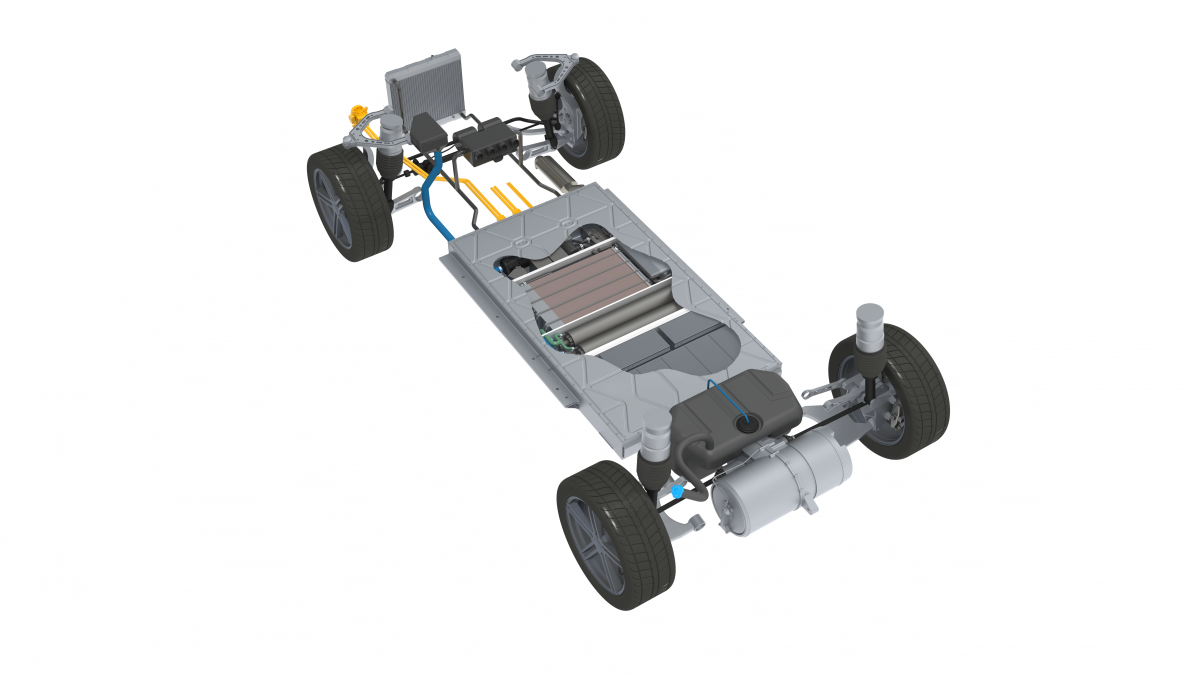Tesla has updated its Model Y delivery timeline in Europe – hinting that Gigafactory Berlin will start production in “mid-2021.” Tesla Model Y in Europe With Model Y, Tesla has taken a completely different approach to rolling out the vehicle in new markets. Previously, the automaker would start production of a new vehicle at the… Continue reading Tesla updates Model Y timeline in Europe, hints at Gigafactory Berlin to start production ‘mid-2021’
Tag: Electric vehicles
Panasonic enjoys lift from Tesla but perils lurk ahead
OSAKA — Panasonic now expects group net profit of 150 billion yen ($1.43 billion) for the year ending in March, the company said Tuesday, as its battery supply business with U.S. electric-vehicle maker Tesla is expected to go into the black over a 12-month period for the first time. The figure still represents a 34% slide for the year,… Continue reading Panasonic enjoys lift from Tesla but perils lurk ahead
Daimler to spin off truck unit, give clear investor focus on Mercedes-Benz
By Nick Carey 2 Min Read (Reuters) – German carmaker Daimler plans to spin-off Daimler Truck, the world’s largest truck and bus maker, as it seeks to increase its investor appeal as a focused electric, luxury car business. FILE PHOTO: Ola Kaellenius, chairman of Daimler AG attends the presentation of the new Mercedes-Benz S-Class at… Continue reading Daimler to spin off truck unit, give clear investor focus on Mercedes-Benz
Daimler to spin off trucks in shift to electric, self-driving vehicles
By Reuters Staff 2 Min Read FILE PHOTO: Daimler AG sign is pictured at the IAA truck show in Hanover, Germany, September 22, 2016. REUTERS/Fabian Bimmer/File Photo/File Photo (Reuters) – German carmaker Daimler plans to spin-off Daimler Truck, the world’s largest truck and bus maker, to allow it to focus on zero-emission vehicles and self-driving… Continue reading Daimler to spin off trucks in shift to electric, self-driving vehicles
Electric moped startup Revel launches an EV charging business
Revel, the shared electric moped startup, is building a DC fast-charging station for electric vehicles in New York City, the first in a new business venture that will eventually spread to other cities. The company said Wednesday that this new “Superhub,” which is located at the former Pfizer building in Brooklyn, will contain 30 chargers… Continue reading Electric moped startup Revel launches an EV charging business
Amazon begins testing customer deliveries using Rivian electric vans
Amazon has started making deliveries to customers in Los Angeles using electric vans designed and built by Rivian. The electric vans, which are part of Amazon’s 2040 climate pledge, won’t go into series production until the end of the year, according to an update Wednesday by the company. Amazon declined to reveal how many electric… Continue reading Amazon begins testing customer deliveries using Rivian electric vans
Volkswagen Sees Sales Of Tesla Model Y Rival ‘Well Over’ 100,000 This Year
TipRanks 3 ‘Strong Buy’ Stocks With 8% Dividend Yield Let’s talk portfolio defense. After last week’s social flash mob market manipulation, that’s a topic that should not be ignored. Now, this is not to say that the markets are collapsing. After 2% losses to close out last week’s Friday session, this week’s trading kicked off… Continue reading Volkswagen Sees Sales Of Tesla Model Y Rival ‘Well Over’ 100,000 This Year
EU car sales: COVID recovery expected to start in 2021, auto industry says
Brussels, 3 February 2021 – After a year that saw the sharpest drop ever in EU car sales due to the COVID-19 pandemic, the European Automobile Manufacturers’ Association (ACEA) forecasts that 2021 will mark a first step on the path to recovery, with sales rising by about 10% compared to 2020. The fallout of COVID… Continue reading EU car sales: COVID recovery expected to start in 2021, auto industry says
@niche: KARMA AUTOMOTIVE AND BLUE WORLD TECHNOLOGIES TO COLLABORATE ON FUEL CELL PROPULSION SYSTEM000504
VIEW ALL () x Fuel-Cell-BWT-Superimposed-HERO-Image Blue-World-Technologies_Methanol-fuel-cell-stack Previous Next Feb 02,2021 Blue World Technology’s fuel cell system will be integrated with Karma Automotive’s electric vehicle architecture and piloted in GS-6 development vehicles for evaluation purposes. Testing and validation will take place in the United States and Denmark over the next few months. An electric vehicle powered… Continue reading @niche: KARMA AUTOMOTIVE AND BLUE WORLD TECHNOLOGIES TO COLLABORATE ON FUEL CELL PROPULSION SYSTEM000504
@niche: GM’S PARTING SHOTS FOR THE END OF THE ICE AGE.000504
By Peter M. DeLorenzo Detroit. The True Believers at GM are living in a strange Twilight Zone as you read this. They have one right foot pressing down hard on machines that will define the End of the ICE Age, while working feverishly on a dazzling array of new-generation products that will usher in the Dawn… Continue reading @niche: GM’S PARTING SHOTS FOR THE END OF THE ICE AGE.000504

